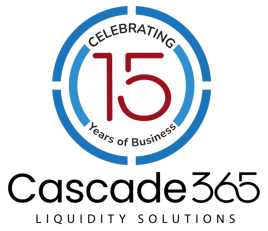As companies evolve and digitize, more data will flow among organizations, partners and customers. This data is extremely valuable to businesses, and it’s also a target for data hackers and other cybercriminals. Clearly, just as digitization has created new opportunities for business and consumers, it has also created new vulnerabilities we all need to plan for.

Source of data: Black Hat, The 2017 Black Hat Attendee Survey: Portrait of an Imminent Cyberthreat, July 2017
Businesses are on a learning curve
Some of the problem, and the reason data is at risk, is that businesses are in uncharted waters. The world is still fairly new at dealing with all the threats that data flow has created. Almost every business has to now determine how to collect, use and destroy data. The better they get at this, the more value they can create and pass on to consumers.
What could go wrong?
If data gets into the wrong hands, consumers can suffer as a result. In the world of debt collection, for example, consumers across the country have reported getting calls on debts they never incurred, or being called by an illegitimate debt collector on a real debt. When personal information is leaked, unscrupulous people will use this valuable data to trick unsuspecting consumers. Real consumers have paid on real debts to fake collectors, which harms the real creditor and consumer alike. Keep in mind:
- Fake debt collectors use intimidation to collect debts you know you don’t owe, or have never heard of.
- Real debt collectors will gladly provide their phone number and mailing address, whereas fake debt collectors insist on electronic payments and will not provide a legitimate business address.
- Unethical debt collectors might try to scare you into paying, threaten to have you arrested or deported—all of this is against the laws that govern the debt collection business.
- Don’t be afraid to ask for a written debt validation notice. The notice must include the amount of the debt, the name of the original creditor, and documentation regarding the debt such as the contract, last statement, or other evidence of the existence the debt.
- You can always call your creditor if your debt is legitimate, but you suspect the debt collector isn’t. Find out if the creditor has authorized that collector to try to recover the debt.
- The FTC and the state Attorney General’s office can help you determine your rights under your own state’s laws.
How can companies do better?
Organizations that want to make sure these data breaches don’t happen are asking themselves:
- What data do we have? Where is it stored? How long do we keep stored data?
- Who uses it? How are we using it?
- Is the data being guarded like an asset? Does the way we guard it line up with our legal obligations, our customer expectations, and this company’s values?
- How might the future change how this data is used?
- What is the worst case scenario for this data? What is our plan for that?
- How can we monitor and improve our data use and data security? Are we doing everything we can to protect consumers?
How can customers safeguard themselves?
Credit safety pros think that whether consumers have had their information hacked or not, there are ways to protect personal data.
- Was your information compromised in the Equifax breach? Regardless, use the tools offered to monitor your credit file against other potential problems. Equifax is now providing free credit monitoring to all US consumers regardless of whether their data was compromised. Consumers must sign up by January 31, 2018. To get more information go to the web site https://www.equifaxsecurity2017.com/. You can also go to the Federal Trade Commission blog for more information at https://www.consumer.ftc.gov/blog/2017/09/equifax-data-breach-what-do.
- Learn the differences between a credit freeze, versus a credit lock. Since you can’t do both, a credit freeze can offer better protections against fraud than a lock, at a lower price point. Plus, a freeze is guaranteed by law, whereas a lock is just an agreement between consumers and the credit monitoring company. If something goes wrong while a security freeze is in place, consumers are protected from financial liability. With locks, there is less clarity about who is liable when credit accounts are accessed fraudulently.
- Check your accounts at least weekly for fraudulent activity. If there is any upside to a data breach, it’s that consumers are increasingly becoming better watchdogs of their finances and personal information. Your credit card companies and banks make this easier by letting you set up online alerts based on transaction size or account balance thresholds.
As our reliance on data and interconnectivity grows, both consumers and businesses will need to develop thoughtful and increasingly sophisticated ways to resist and prepare for the potentially disruptive consequences of a data security breach.
About Cascade365
We are a family of companies providing accounts receivable liquidity solutions to the consumer finance and healthcare industries.
Cascade365’s suite of products and services include AR purchase and finance, master servicing and third-party collections, and revenue cycle optimization. We promote financial accountability while treating people with care, fairness and dignity.
